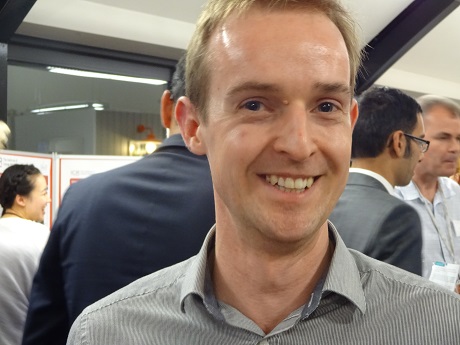Using viruses to kill cancer
Full project name: Sensitizing p53 mutant head and neck cancer to oncolytic virotherapy by targeting the endoplasmic reticulum (ER) stress response
Tag: New treatment | Past Project
This study, led by Professor Harrington and conducted by Dr Martin McLaughlin, is pioneering the use of another type of virus therapy (reovirus) as a means of killing cancer cells in a way that makes them far more visible to the immune system. This effect is caused by the virus’s ability to disrupt the normal metabolism of cancer cells. Cancer cells can be seen as factories whose main products are different types of proteins.
These proteins are produced on a production line which initially involves an “assembly step” (in which the various chemical components are linked together in the correct order) followed by a “finishing step” (in which the components are folded into a three-dimensional shape that allows the protein to do its job). The finishing step involves a newly manufactured protein passing through a place in the cell called the endoplasmic reticulum or ER – but there is a limit to how much protein the ER can deal with at any one time. If protein production is too high or the finishing process of protein folding is slowed down, a “traffic jam” of protein can build up in the ER – leading to a phenomenon called ER or proteotoxic stress. This latter term literally means to be poisoned by protein. Proteotoxic stress can lead to cancer cell death and this can be associated with proteins that are specific for cancer cells appearing on or outside the cell – where they can be detected by the immune system.
Preliminary data have shown that reovirus is very good at causing proteotoxic stress. The project will involve conducting studies that will allow us to understand how to trigger proteotoxic stress to an even greater extent and to make sure that it occurs in such a way as to generate enhanced immune responses.

Help us beat cancer
Our life-saving work relies on the money you give us.
Donate now and together we can save more lives by beating cancer sooner.

Project type:
Project
Project Leader:
Professor Harrington
Researcher:
Dr Martin McLaughlin
Commencement date:
August 2016
Length of project:
9 months (+12 month extension)
Funding provided:
£83,220
Funder:
DPS Limited
Location:
The Institute of Cancer Research
Completed projects


